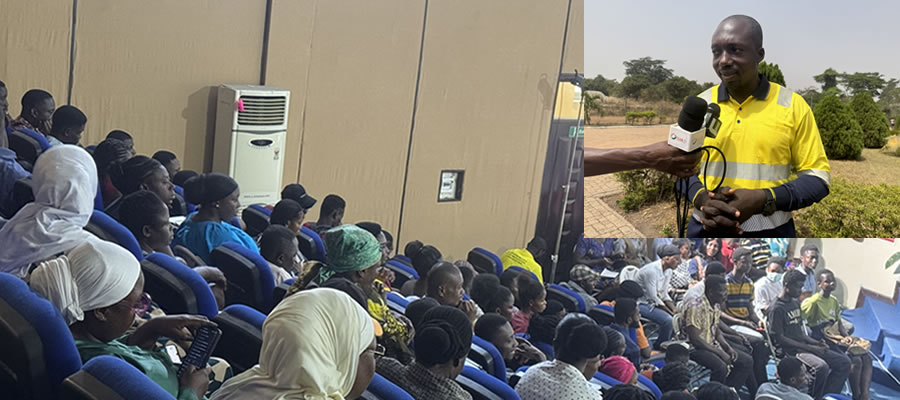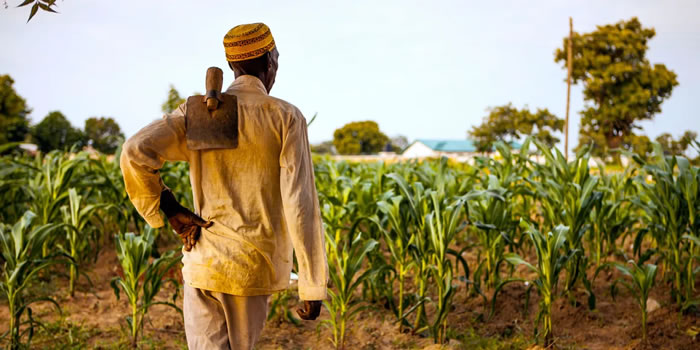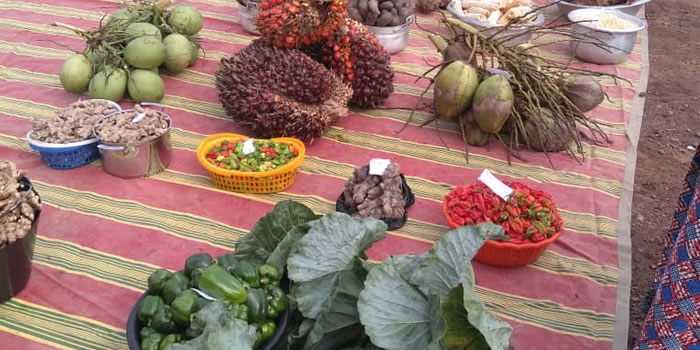

AGRICULTURE
Crop Research scientists worried over gradual extinction of crop pollinators
Crop Research scientists are getting worried over the gradual extinction of crop pollinators as a result of the increasing use of pesticides and inorganic fertilizers in farming practices.

Date Created : 12/31/2024 12:00:00 AM : Story Author : Florence Afriyie Mensah /Ghanadistricts.com
Data available indicates that about 60 percent of Africa’s land resources are degraded and crop pollinators gradually going extinct.
Places where inorganic and high loaded pesticides containing neonicotinoids, the chemical substance that kills bees and pollinators are used, there is the tendency of low or no crop productivity.
Dr Kwaku Onwona-Hwesofour Asante, a Researcher at the Crops Research Institute of the Council for Scientific and Industrial Research (CSIR-CRI), who made this known, said it was important for farmers to transition from conventional agriculture to agroecology to help protect pollinators that were being destroyed using some pesticides.
“With the high load of neonicotinoids in the pesticide that farmers use, our pollinators are gradually declining and becoming extinct.
It will get to a point where we will plant the food or crops and there will be no pollinators to transfer the pollen grains and therefore, we will not have the fruits we need,” he explained.
Dr Asante was speaking at the youth in agriculture and environmental sciences capacity building initiative at Fumesua near Ejisu in the Ashanti Region.
According to him, institutions such as COCOBOD were embarking on the use of hand pollination exercise with the aim of maximising yields, and that was evidence to the need to protect pollinators.
He said young people in agriculture and environmental sciences were critical at this time due to the nature of ecological transitioning in the food system, which had largely been problematic in terms of environmental degradation and agricultural production.
This situation had not been too healthy for the environment and for human consumption, he stated.
As part of the capacity building, the youth were introduced to preparation of organic pesticides, organic fertilisers, liquid fertilisers, and compost with the goal to reduce agricultural associated emissions from black carbon through burning, and from methane through rice production.
Dr Asante was optimistic that as these changes towards emission reductions were enhanced, it would promote agricultural productivity, improve health, and support ecosystem services, which were vital for food systems.
The capacity building workshop forms part of the Agroecology and Circular Economy for Ecosystem Services in Sub-Saharan Africa (ACE4ES) Project which focuses on integrating sustainable agricultural practices that reduce reliance on chemical inputs and minimize emissions.









 facebook
facebook
 X
X
 Youtube
Youtube
 instagram
instagram
 +233 593 831 280
+233 593 831 280 0800 430 430
0800 430 430 GPS: GE-231-4383
GPS: GE-231-4383 info@ghanadistricts.com
info@ghanadistricts.com Box GP1044, Accra, Ghana
Box GP1044, Accra, Ghana